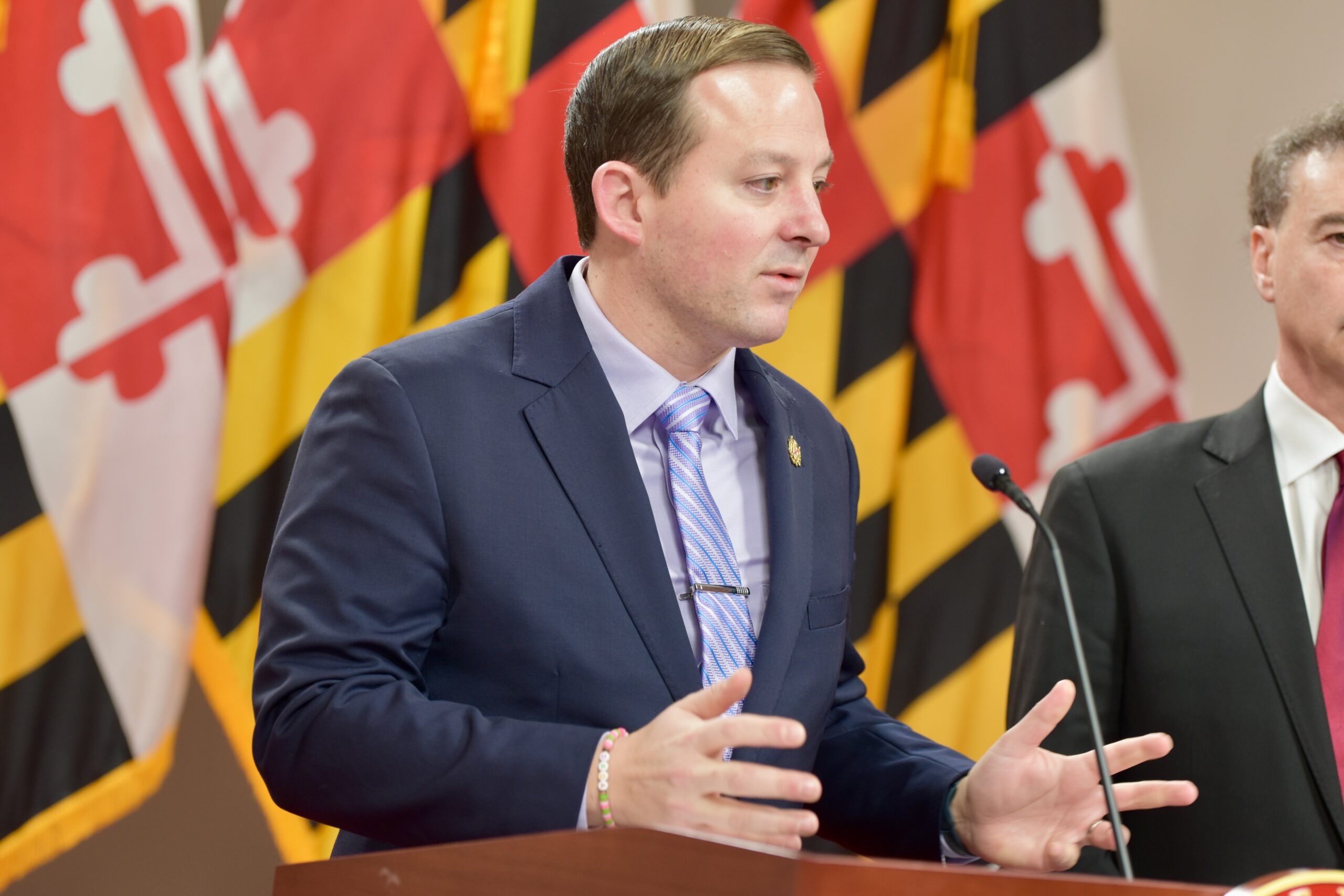Ferguson calls for surgical cuts to Moore’s budget

Maryland Senate President Bill Ferguson (D-Baltimore City) said he has instructed the Senate Budget and Taxation Committee to “pull out the scalpel” as it reviews Gov. Wes Moore’s proposed fiscal 2025 budget.
Moore proposed the $63.1 billion budget two weeks ago and claimed millions in “rebasing” — he deftly avoided the word cuts. Lawmakers in the Senate, who get the first crack at massaging the spending plan, are likely to find additional reductions, places to increase spending and potential fee increases.
Ferguson, however, said he is reluctant to pursue tax increases this year, citing the lingering effects of prices driven by inflation over the last two years.
“I would say it’s not an absolutely no to any revenue whatsoever,” Ferguson told reporters Friday. “We’ve talked about the [Shock] trauma system, which is facing a deficit because of the special funds not meeting the demands of the trauma system overall. There are going to be some specific areas where there might be some special fund fees that are applied for specific purposes.”
Moore’s budget contains hundreds of millions in spending on new and expanded programs including treating violent crime as a public health issue, expanding his signature service program, continuing his attack on the causes of childhood poverty, and adding 2,500 new positions to state government. He also delayed for one year massive cuts to state transportation projects with a $150 million transfer from the state’s so-called rainy day surplus account.
Moore touted his plan and his ability to focus on his goals without tax increases. Moore added that he would be reluctant to sign off on such an increase though has not completely foreclosed the possibility of one this year.
The fix is a Band-Aid if not a budget mirage.
Looming in the coming years are billions of dollars in structural budget deficits.
By next year, the state’s projected structural budget deficit will grow to $1 billion. In fiscal 2027, the last year of Moore’s term, it grows to $1.3 billion. A year later, it more than doubles to $3 billion — about 12% of the general fund revenues projected for that year.
Legislative budget analysts call the shortfalls “historic” because they are typically seen when the state is in a recession or coming out of one. Those same analysts told House and Senate fiscal leaders that Moore’s budget does little to attack those out-year problems.
Additionally, the state still faces more than $3.1 billion in draconian cuts to transportation projects as the Transportation Trust Fund faces shortfalls over the next six years.
In the House, Appropriations Chair Ben Barnes (D-Prince George’s and Anne Arundel) has called the analysis “frightening.” He has signaled an interest in a tax increase as soon as this year to prime the tax pump for coming leaner years.
Barnes earlier this month said he believes his counterparts in the Senate will see the necessity if not the wisdom in such actions.

Fair Share Maryland. Photo by Bryan P. Sears.
One possibility is an omnibus bill proposed in the House and Senate that advocates say would close corporate tax loopholes, increase the state’s inheritance and capital gains taxes, and provide a tax break to working families. The bill, if passed as proposed, would raise $1.6 billion annually once fully phased in, according to advocates.
Ferguson, the leader of the Senate, said there are other steps that can be taken before raising taxes.
“When we think about a whole scale reform of revenues, this isn’t the year for a variety of reasons,” said Ferguson. “I think first, and foremost Marylanders are feeling the pinch of inflation. This is the period where we have to normalize again. We have to get to a place of really making tough decisions about prioritizing what programs matter the most and that they’re as effective as possible. That’s an important part of the budgeting process.”
Ferguson said he might be able to one day support some of the proposed tax changes but not this year.
“Timing is everything,” he said.
Instead, Ferguson said spending needs to be reprioritized.
“We need to really think about how to approach it and what we will fund in the case that there are revenues in the future,” he told reporters. “We’re not in a place where we’re ready to have a whole scale conversation about revenues. We’ve got to start prioritizing education, transportation and really having more conversations about what we can do but also most importantly, what we’re not going to be able to do right now.”
That also means the possibility of additional cuts, he said.
“Look, conversations I’ve had with the Budget and Tax Committee is pull out the scalpel. This is a time to really focus in and find places where there are adjustments that are possible that we are normalizing again,” said Ferguson, adding: “I think overall, to budget leaders, the message has been cut where needed.”




 Creative Commons Attribution
Creative Commons Attribution